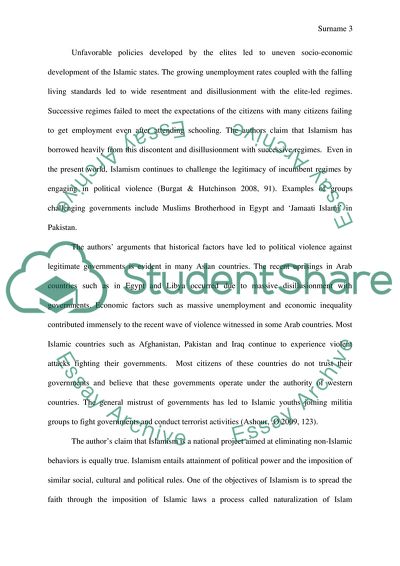Cite this document
(Analysis of Islam and Political Violence :Muslim Diaspora and Book Report/Review, n.d.)
Analysis of Islam and Political Violence :Muslim Diaspora and Book Report/Review. https://studentshare.org/politics/1844873-shahram-akbarzadeh-fethi-mansour2010-islam-and-political-violence-muslim-diaspora-and-radicalism-in-the-west
Analysis of Islam and Political Violence :Muslim Diaspora and Book Report/Review. https://studentshare.org/politics/1844873-shahram-akbarzadeh-fethi-mansour2010-islam-and-political-violence-muslim-diaspora-and-radicalism-in-the-west
(Analysis of Islam and Political Violence :Muslim Diaspora and Book Report/Review)
Analysis of Islam and Political Violence :Muslim Diaspora and Book Report/Review. https://studentshare.org/politics/1844873-shahram-akbarzadeh-fethi-mansour2010-islam-and-political-violence-muslim-diaspora-and-radicalism-in-the-west.
Analysis of Islam and Political Violence :Muslim Diaspora and Book Report/Review. https://studentshare.org/politics/1844873-shahram-akbarzadeh-fethi-mansour2010-islam-and-political-violence-muslim-diaspora-and-radicalism-in-the-west.
“Analysis of Islam and Political Violence :Muslim Diaspora and Book Report/Review”. https://studentshare.org/politics/1844873-shahram-akbarzadeh-fethi-mansour2010-islam-and-political-violence-muslim-diaspora-and-radicalism-in-the-west.


